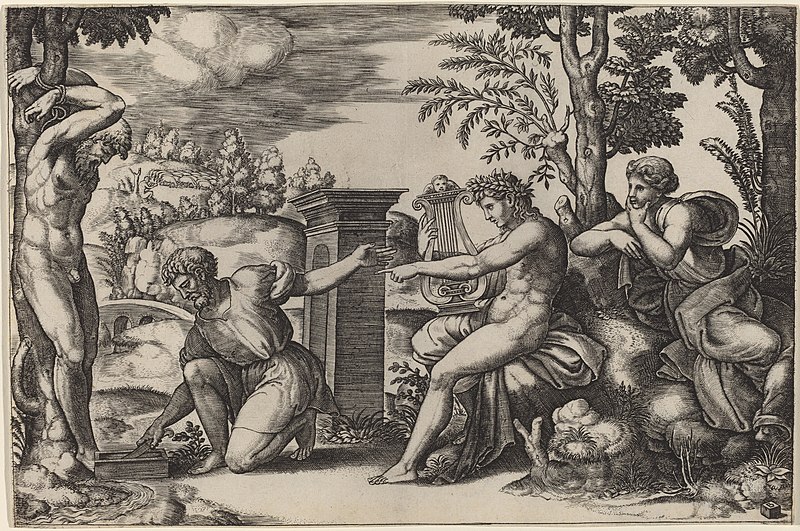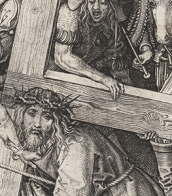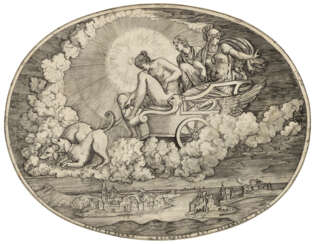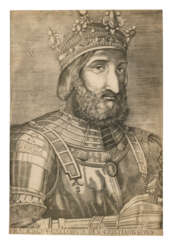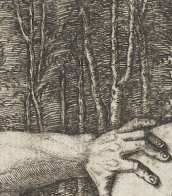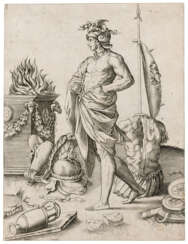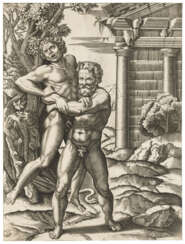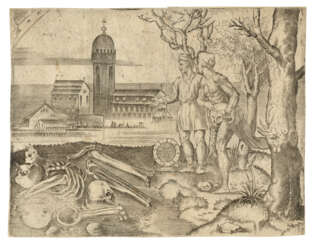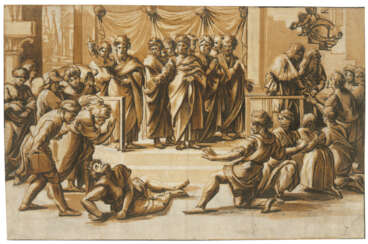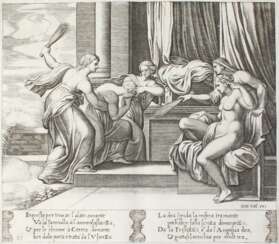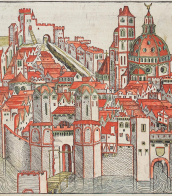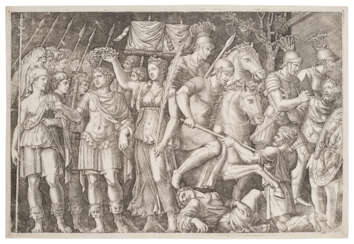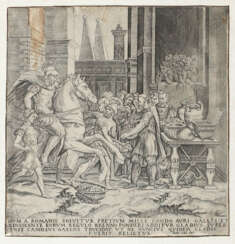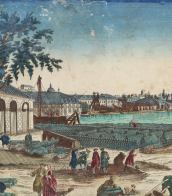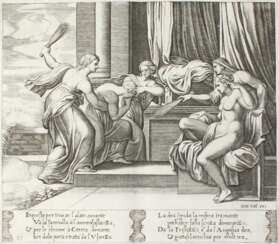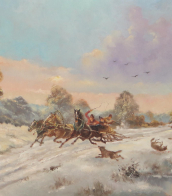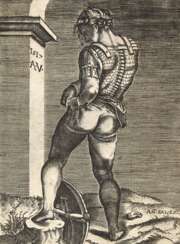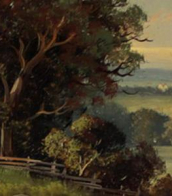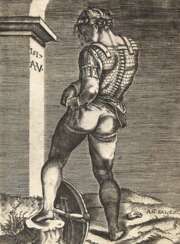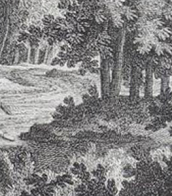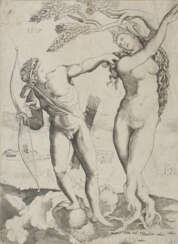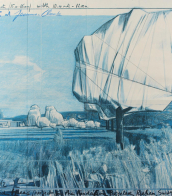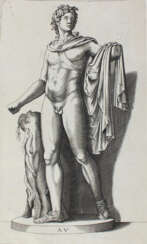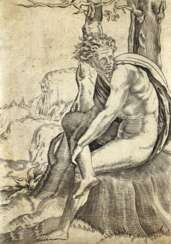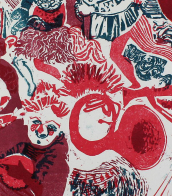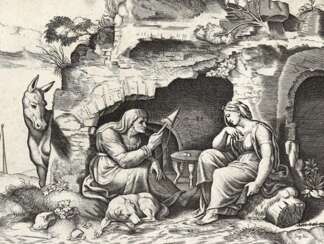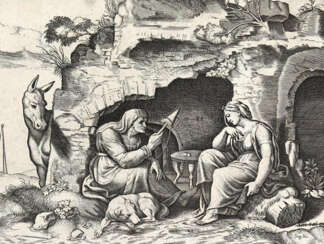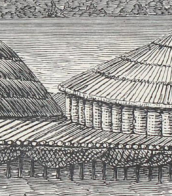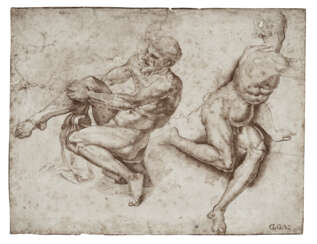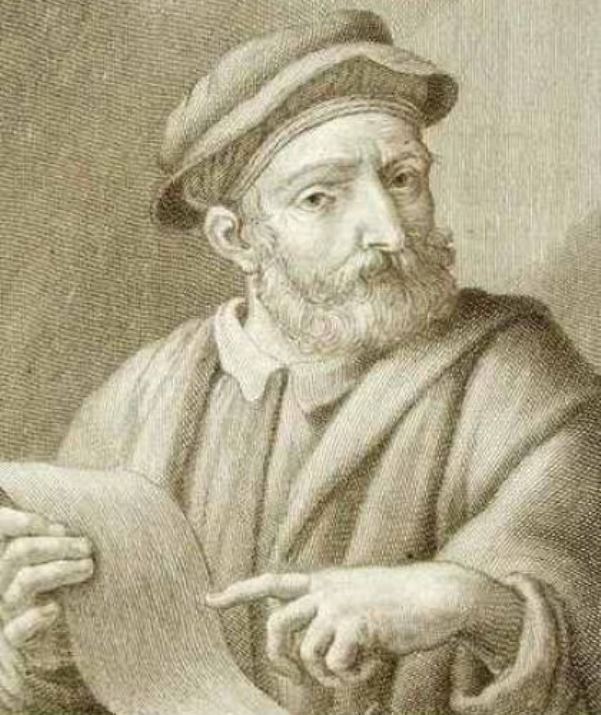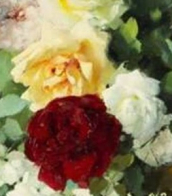agostino veneziano (1490 - 1540)
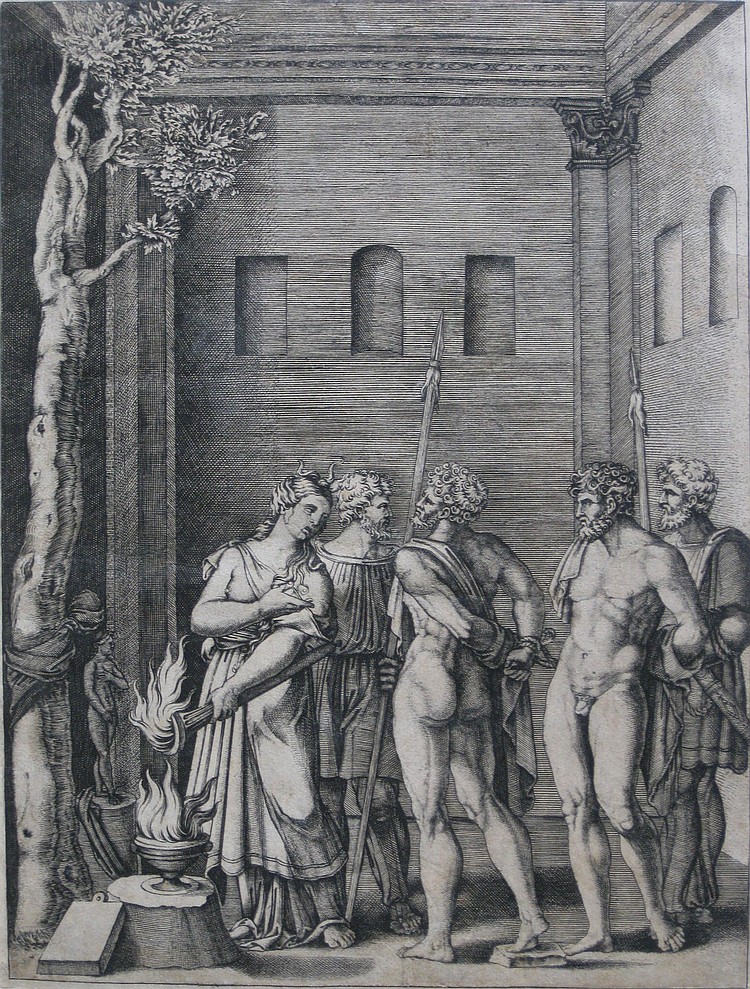
.jpg)
Ugo da Carpi was an Italian printmaker active between 1502 and 1532 in the cities of Venice, Rome and Bologna. He is known for his technical and stylistic contributions to the chiaroscuro woodcut, a printmaking technique using blocks of different colours. Ugo claimed to be the first to use this technique, seeking a copyright first from the Venetian senate, and later from Pope Leo X. Although he did not create the chiaroscuro woodcut technique, he was one of the first Italian practitioners. He contributed to its development through his powerful style, focus on tonality and interpretive skills. One of his most famous works is a print of Diogenes. In addition to his numerous prints, he produced a writing book, and is also known to have produced at least one painting, the altarpiece of Saint Veronica in Saint Peter's Basilica in Rome.
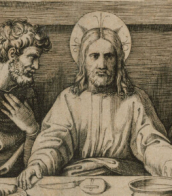
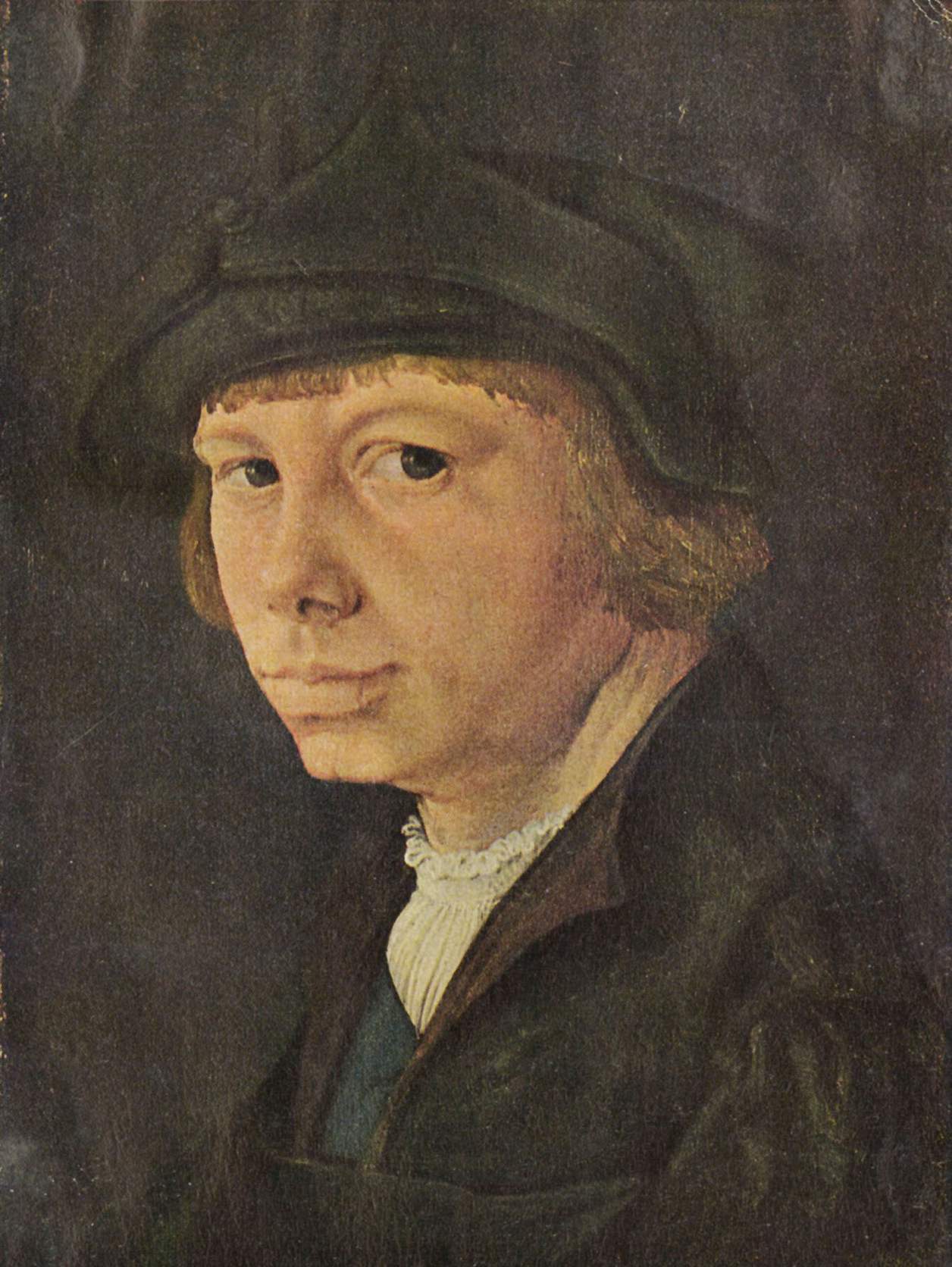
Lucas van Leyden, also named either Lucas Hugensz or Lucas Jacobsz, was a Dutch painter and printmaker in engraving and woodcut. Lucas van Leyden was among the first Dutch exponents of genre painting and was a very accomplished engraver.

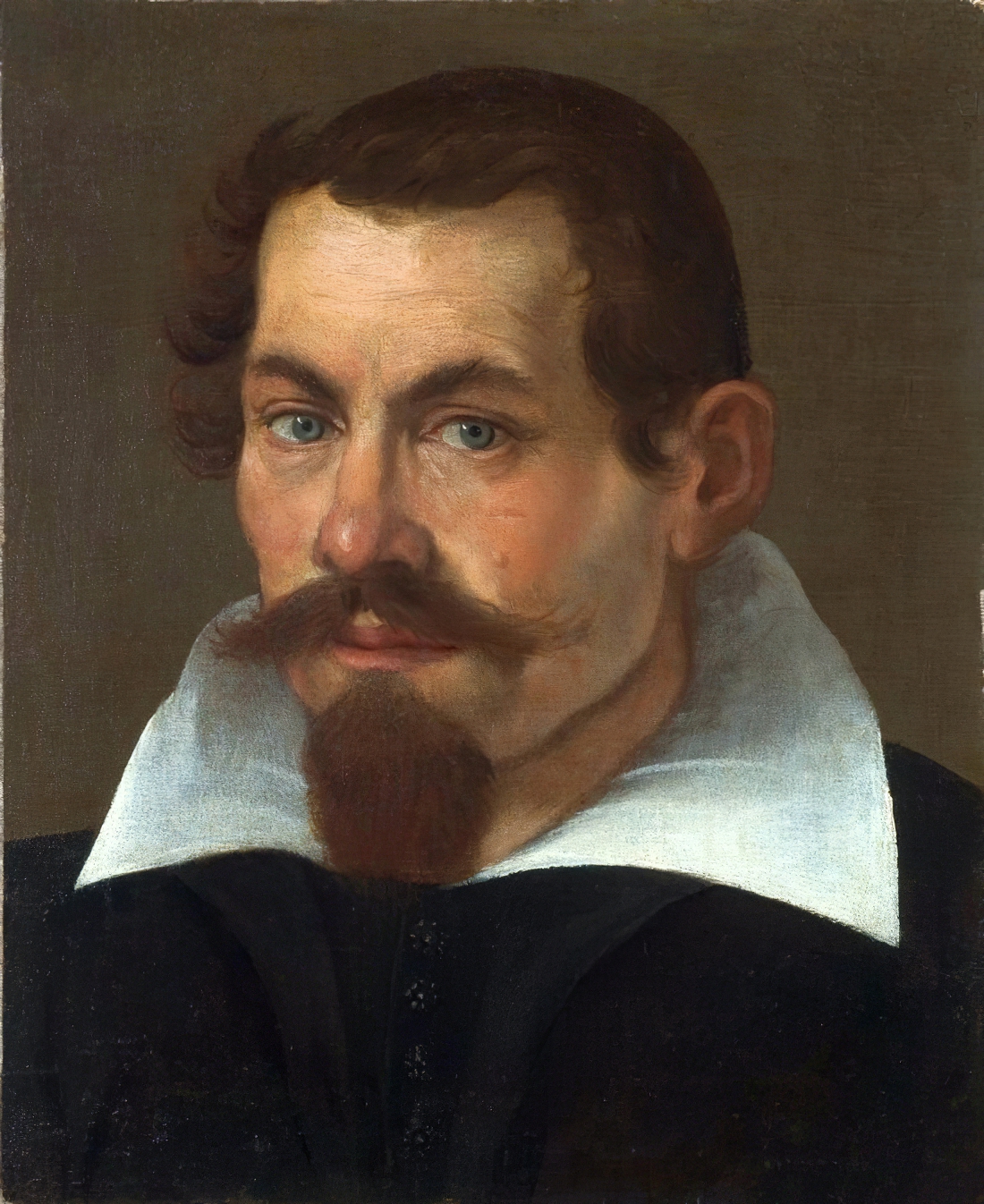
Agostino Carracci, an Italian painter and printmaker born in 1557 in Bologna, is celebrated not just for his own art but also for his significant contributions alongside his brother Annibale and cousin Ludovico to the revitalization of Italian painting at the end of the sixteenth century. While Agostino's paintings are noteworthy, he is particularly distinguished as one of the premier printmakers of his era, producing high-quality reproductive engravings of works by renowned artists like Veronese and Tintoretto, as well as his original creations.
His collaborative work with Annibale on the frescoes for the gallery of the Palazzo Farnese in Rome is one of the notable highlights of his career, demonstrating the Carracci family's impact on the direction of Italian art towards a more realistic and classical style, countering the prevalent Mannerist tendencies of their time. His untimely death in 1602 in Parma curtailed a career that, through his engravings and teachings at the informal academy founded in Bologna with his relatives, influenced a broad swath of the art world, including future generations.
For art collectors and experts, Agostino Carracci's works offer a glimpse into a pivotal moment in art history, where a shift towards classical realism was being forged. His engravings and paintings remain a testament to his skill and a vital part of the narrative of Italian art's evolution.
To delve deeper into Agostino Carracci's world and stay informed about related artworks and auction events, signing up for updates is a proactive step. By subscribing, you'll receive tailored information about Agostino Carracci, ensuring you're always in the loop regarding new insights and opportunities in the realm of art and antiques related to this influential figure.
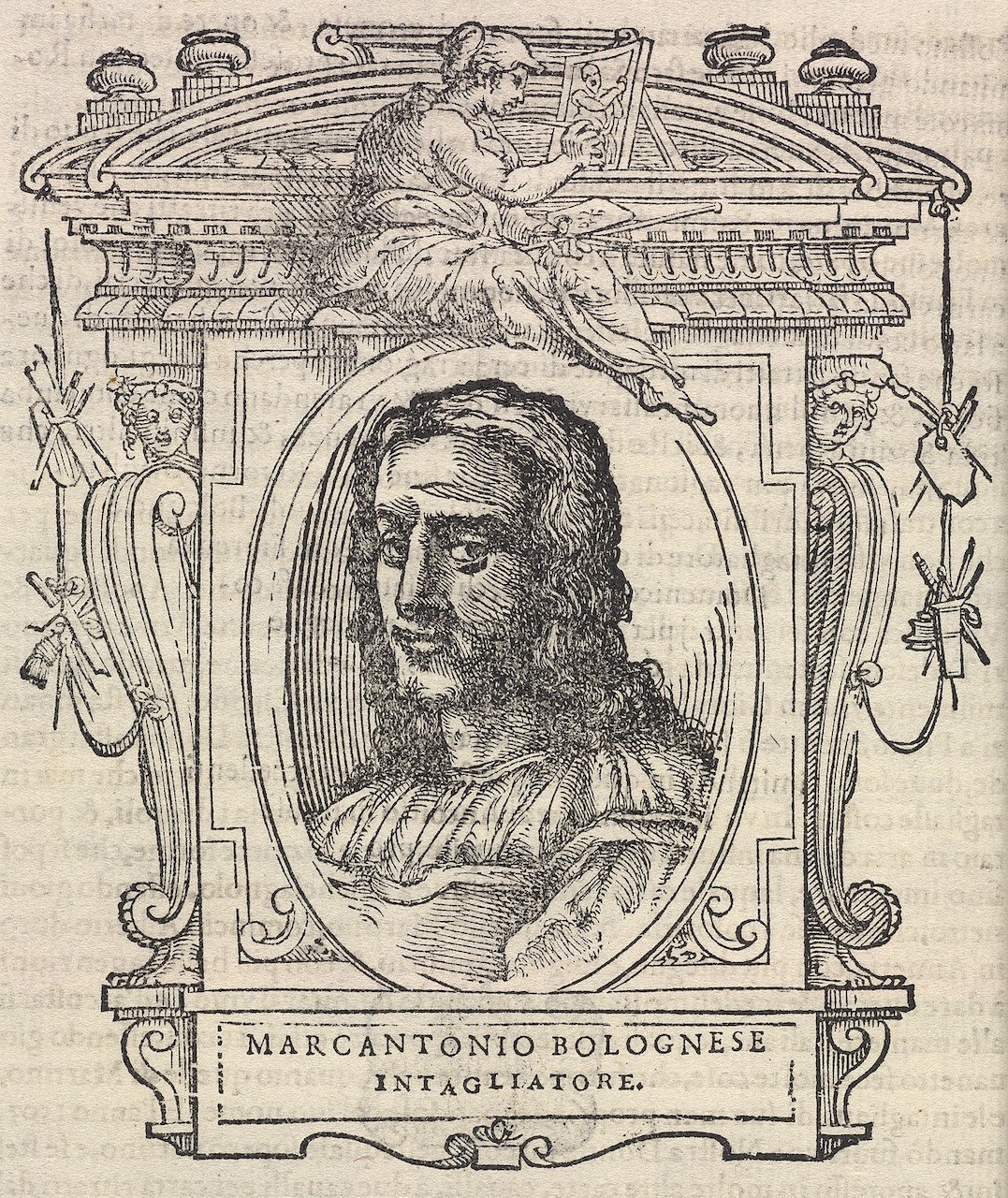
Marcantonio Raimondi, also Marcantonio Francia, was an Italian draftsman and copper engraver. He authored more than 300 engravings of Renaissance artworks, including paintings by Raphael and ancient monuments such as architecture, vases and ornaments.
Marcantonio spent his childhood years in Bologna, but little is known of his mother and father's family. The artist was called "Marco Antonio Bolognese". According to Giorgio Vasari, Marcantonio spent some time in France, as his monogram "MAF": Marcantonio Francia confirms. Later he travelled between Venice, Florence and Rome. Influences of the French style can be seen in his works.
His work on the works of Raphael led Marcantonio to collaborate with Giulio Romano, who first commissioned from him a series of images taken from The Histories of Venus, Apollo and Hyacinth and The Histories of Magdalene and the Four Evangelists. Sixteen engravings, based on drawings by Giulio Romano, of Pietro Aretino's love sonnets and containing an erotic subject, were called "Poses of Aretino".
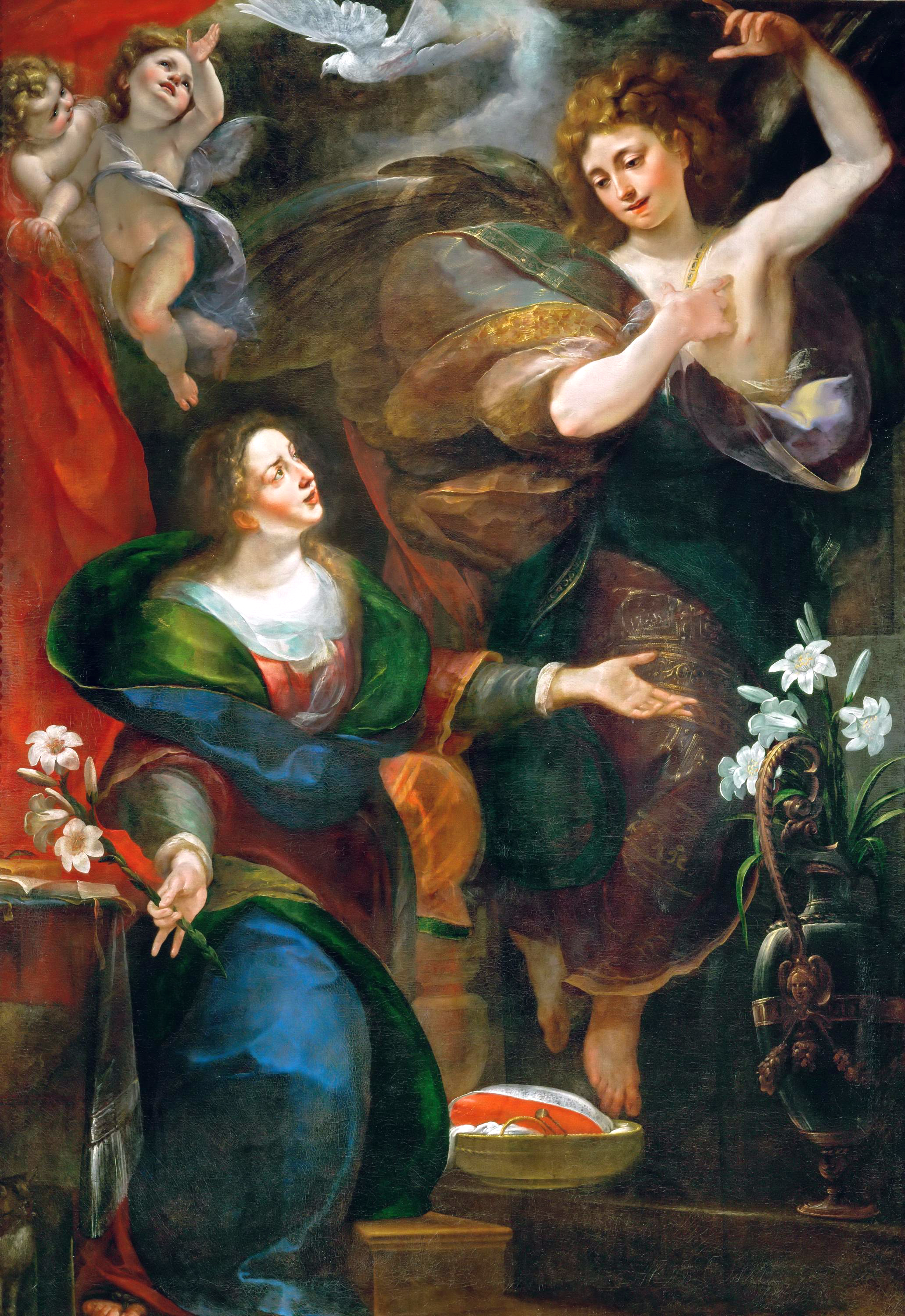
Camillo Procaccini was an Italian painter. He has been posthumously referred to as the Vasari of Lombardy, for his prolific Mannerist fresco decoration. He was the son of the painter Ercole Procaccini the Elder, and older brother to Giulio Cesare and Carlo Antonio, both painters.
